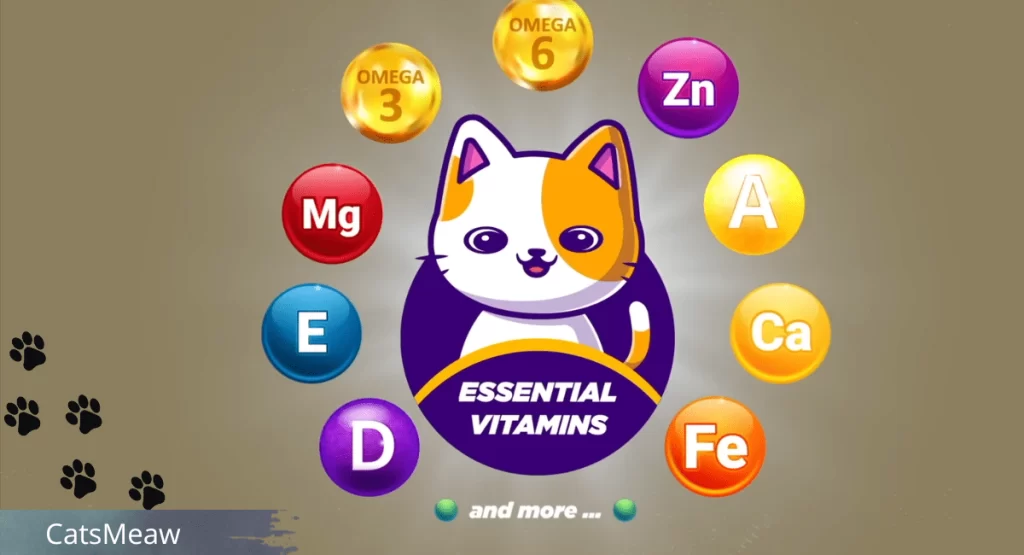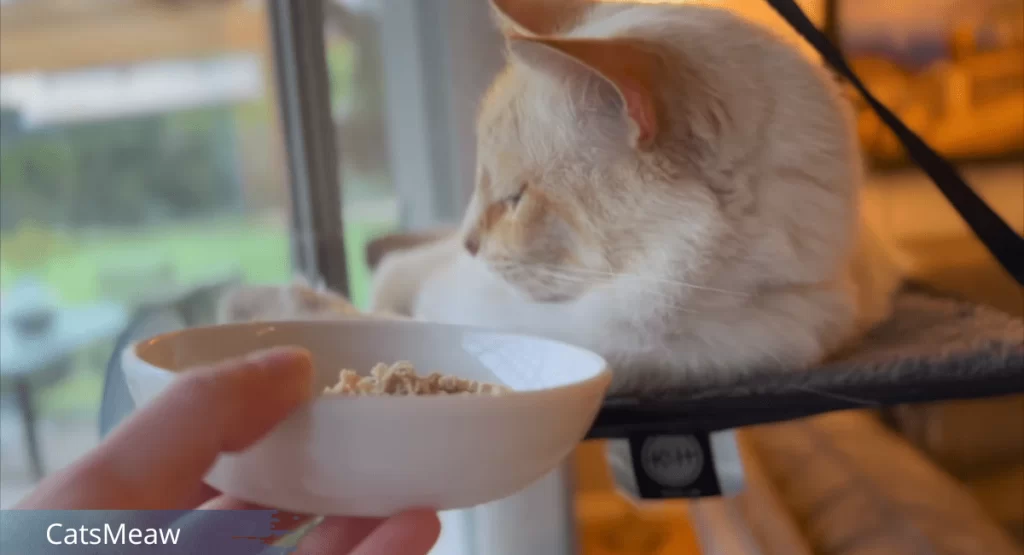When it comes to our cats, ensuring they have the best nutrition is crucial, especially if they suffer from allergies. Cat food for cats with allergies isn’t just a dietary choice; it’s a lifeline that helps manage symptoms and improve your cat’s quality of life.
This article will explore everything you need to know about finding the perfect cat food for cats with allergies to keep your furry companion healthy and happy.

Table of Contents
Understanding Cat Allergies and Their Impact
Cats, like humans, can suffer from a variety of allergies. These allergies often stem from their diet, making it essential to find the right cat food for cats with allergies. The most common allergens include certain proteins, grains, and artificial additives found in many commercial cat foods. Identifying and eliminating these allergens is the first step in managing your cat’s symptoms.
Common Allergies in Cats
When it comes to cat food for cats with allergies, it’s important to distinguish between food allergies and food intolerances. Food allergies trigger an immune response, often leading to symptoms like itching, skin rashes, and gastrointestinal issues.
Our pick: The Best Cat Food for Indoor Cats
On the other hand, food intolerances might cause digestive discomfort but don’t involve the immune system. Knowing the difference helps in choosing the right cat food for cats with allergies.
Symptoms of Food Allergies in Cats
The symptoms of food allergies in cats can vary but often include skin irritations, such as itching and redness, gastrointestinal problems like vomiting or diarrhea, and even behavioral changes. If your cat shows any of these symptoms, it may be time to consider switching to a specialized cat food for cats with allergies.
Related: Most Dangerous foods for cats
Diagnosing Food Allergies
Before switching your cat’s diet, it’s important to confirm that your cat indeed has a food allergy. A veterinary consultation is crucial.

Vets often recommend an elimination diet, where you remove potential allergens and gradually reintroduce foods to identify the culprit. Once diagnosed, you can focus on finding the best cat food for cats with allergies.
Types of Cat Food for Allergies
Finding the right cat food for cats with allergies can be challenging, but there are several options designed to cater to allergic cats:
- Hypoallergenic Cat Food: These foods are specifically formulated to reduce the risk of allergic reactions.
- Limited Ingredient Diets (LID): LID cat foods contain fewer ingredients, making it easier to avoid common allergens.
- Novel Protein Diets: This type of food uses uncommon proteins like venison or duck, which your cat is less likely to be allergic to.
- Prescription Cat Foods: If your cat’s allergies are severe, your vet might recommend a prescription diet tailored to your cat’s specific needs.
Each of these options provides a different approach to managing your cat’s allergies, ensuring you can find the perfect cat food for cats with allergies.
Key Ingredients to Look for in Allergy-Friendly Cat Food
When selecting cat food for cats with allergies, it’s important to know what to look for:
- Safe Protein Sources: Opt for proteins like lamb, duck, or even hydrolyzed proteins, which are less likely to trigger allergies.
- Grain-Free Options: Many cats are allergic to grains, so a grain-free diet might be beneficial.
- Omega-3 Fatty Acids: These can help reduce inflammation and support skin health, which is often affected by allergies.
Choosing a cat food for cats with allergies with these ingredients can make a significant difference in managing your cat’s symptoms.
Ingredients to Avoid
When searching for cat food for cats with allergies, it’s equally important to know which ingredients to avoid. Common culprits include:
- Common Protein Allergens: Beef, chicken, and fish are frequent offenders.
- Grains and Fillers: Ingredients like corn, wheat, and soy are often problematic.
- Artificial Additives: Preservatives, colors, and flavorings can also trigger allergic reactions.
Related: Most Dangerous foods for cats
By avoiding these ingredients, you can ensure that the cat food for cats with allergies you choose is as safe and effective as possible.
Top Cat Food Brands for Allergic Cats
There are several reputable brands that offer cat food for cats with allergies:
- Purina: Known for its hypoallergenic formulas.
- Hill’s: Offers a variety of limited ingredient diets.
- IAMS: Specializes in novel protein diets.
Each of these brands provides high-quality options that can help you manage your cat’s allergies effectively. Always check with your vet before switching to a new cat food for cats with allergies.
Homemade Cat Food for Allergies
For some cats owners, making homemade cat food for cats with allergies is the best option. This approach allows you to control every ingredient, ensuring that your cat’s food is free from allergens. However, it’s important to consult with a vet or pet nutritionist to ensure the diet is balanced and meets all of your cat’s nutritional needs.

Transitioning Your Cat to an Allergy-Friendly Diet
Switching to a new cat food for cats with allergies should be done gradually to avoid digestive upset. Start by mixing the new food with your cat’s current diet, gradually increasing the proportion of the new food over a week or two. Monitor your cat’s response closely and consult your vet if you notice any adverse reactions.
Additional Tips for Managing Cat Allergies
In addition to feeding your cat the right cat food for cats with allergies, consider these tips:
- Regular Vet Check-ups: Regular check-ups help monitor your cat’s health and catch any issues early.
- Supplements: Certain supplements, like probiotics or omega-3 fatty acids, can support your cat’s immune system and skin health.
- Environmental Factors: Ensure your cat’s environment is free from other potential allergens, like dust or certain cleaning products.
Conclusion
Finding the right cat food for cats with allergies is essential for managing your cat’s symptoms and ensuring they lead a healthy, happy life. Whether you opt for a commercial hypoallergenic brand, a limited ingredient diet, or even homemade food, the key is to provide a diet that meets your cat’s specific needs. By understanding the common allergens and knowing what to look for in a cat food for cats with allergies, you can make an informed choice that benefits your furry friend.
